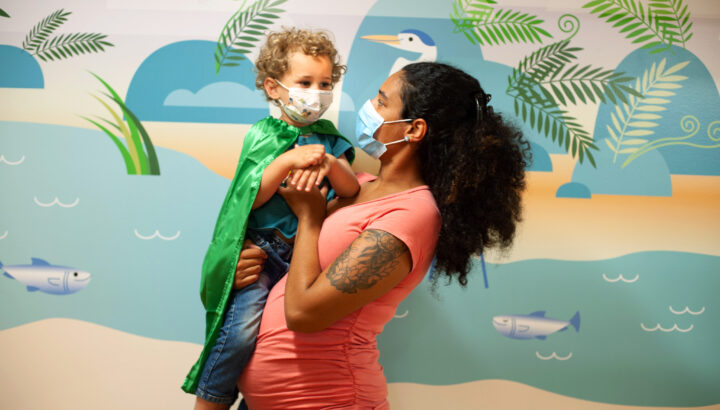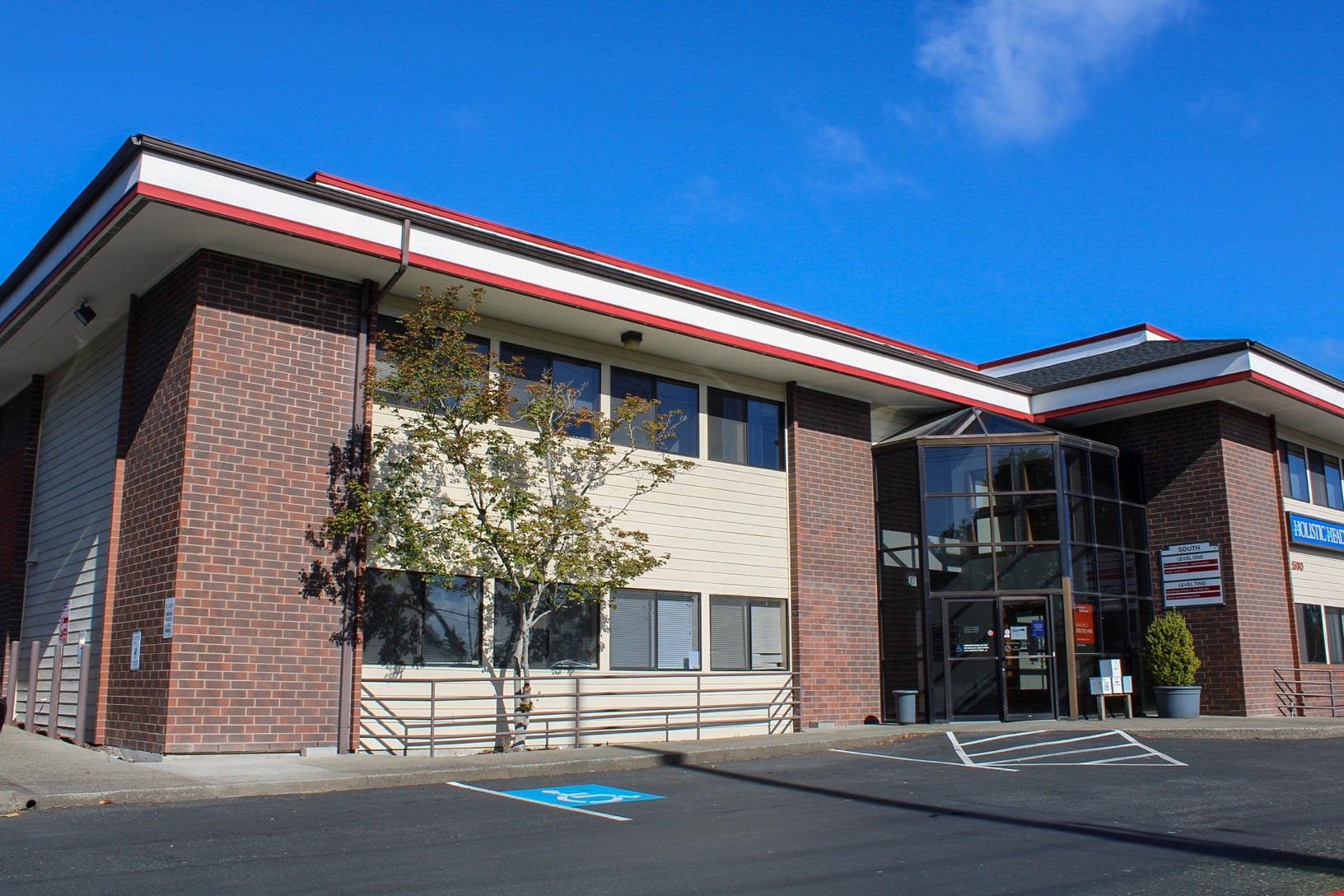Expert pediatric urology care with a family-centered focus

Improving your child’s urological health, giving you peace of mind
The urinary tract plays an important role in our daily lives — it produces, holds and eventually carries urine (pee) out of the body. Our pediatric urology specialists treat problems that affect the different parts of this pathway, including the bladder, kidney, ureters and urethra. Urologists also treat conditions that affect the genitals and reproductive organs, such as the vagina, penis or testes.
Some urologic problems are evident at birth — or even before a baby is born — while others may appear as a child grows. We work closely with you to diagnose and treat the full spectrum of urologic disorders, from common to unusual. Here’s why families turn to Mary Bridge Children’s for urologic care:
Advanced treatment from experienced, collaborative professionals. Our experts include board-certified pediatric urologists and nurse practitioners who bring years of clinical training and expertise in providing urologic care for children. We routinely collaborate with MultiCare Maternal Fetal Medicine to offer prenatal consultations for congenital conditions (a condition that a child is born with) that may require medical management or surgery after delivery.
A full range of leading-edge surgical care. When surgery is necessary to address a urologic problem, we use the latest techniques, including minimally invasive surgery. Through this approach, surgeons can make smaller incisions, which often results in shorter hospitals stays, less pain, reduced scarring and faster recovery times — so kids can get back to being kids as soon as possible. We work closely with you to discuss surgical options and choose the ideal approach for your child’s situation. Visit our Urological Surgery page to learn more.
Compassionate, effective nonsurgical options. Not all urologic issues require surgery. Some problems may resolve on their own over time or can be addressed with medication or minor procedures. We partner with all families to uncover the root of a urologic problem and develop a plan to resolve it.

How to refer a patient
Referring providers should submit referrals via Epic. For those not on Epic, please fax referrals to 253-864-3939.
For more information about urology care at Mary Bridge Children’s, please call 253-301-5350.
Conditions & treatments
- Antenatal urology consultations (fetal urology)
- Bladder dysfunction
- Chordee
- Disorders of sexual differentiation
- Hematuria (blood in the urine)
- Hernias
- Hydroceles
- Hydronephrosis
- Hypospadias
- Kidney cysts
- Kidney stones
- Meatal stenosis
- Phimosis
- Retractile testes
- Undescended testes
- Urinary tract infections
- Ureteropelvic junction (UP) obstruction
- Ureterovesical junction (UVJ) obstruction
- Vesicoureteral reflux
- Please note: we do not perform newborn circumcisions
What to expect and next steps
We serve children on a referral basis. Please arrive for your appointment 15 minutes early to allow ample time for checking in and filling out necessary paperwork. Families who arrive more than 10 minutes late may have to reschedule their appointment.
The following information will help you plan for your visit.
Initial appointments
During a first appointment, our pediatric urologist will complete a medical history and physical exam. Depending on your child’s condition, we will determine if further diagnostic testing is necessary. Some common tests we perform include:
Urinalysis: A test that detects medical conditions such as a urinary tract infection (UTI) by examining the urine.
Blood tests: A test that can indicate how well the kidneys are working.
Ultrasound: A non-invasive type of imaging that provides greater detail about organs such as the kidneys, bladder, uterus, ovaries and testicles.
Voiding cystourethrogram (VCUG): An imaging procedure that uses X-rays to see how the bladder stores and empties urine.
After we make a diagnosis, together we develop a treatment plan and then share that plan with your child’s primary care provider.
For a description of urologic disorders in children, visit the Urology Care Foundation. You can also watch child-friendly educational videos such as How does your urinary tract work?
Preparing for your first appointment
Following these tips can help you get the most out of your appointment.
Obtain medical records. Ask your child’s primary care provider to send chart notes, X-rays and any lab results regarding your child’s condition. If X-rays, CT scans or MRIs were performed outside MultiCare, please bring these images with you.
Complete forms. Before your visit, please complete a patient intake history form.
Bring a list of prescription drugs. Include all medications, vitamins and supplements your child is taking.
Discuss the upcoming clinic visit if your child is developmentally ready. Often a first appointment consists of a medical history and a physical exam.
Arrange care for siblings. If you are unable to arrange care, please ensure other children can engage in a quiet activity so you can focus on the visit.
Arrive 15 minutes early. Being early ensures adequate time for checking in and filling out any necessary paperwork. If you are more than 10 minutes late, we may have to reschedule your appointment.
Turn off cellphones and pagers. It’s easier for both you and the urology specialist to focus on your child when communication devices are switched off. This also helps maintain a calm, quiet environment for all patients.



